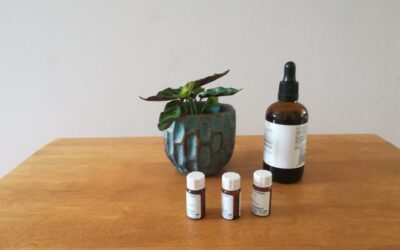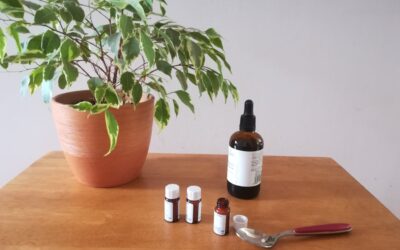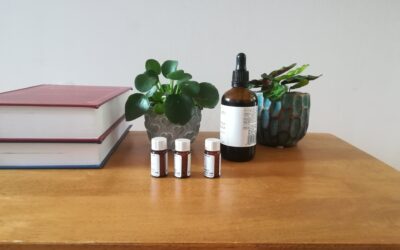About Candida
Conditions caused by candida overgrowth
Many health problems might be associated with an overgrowth of Candida, the condition known as yeast infection or candidiasis.
Conditions of the skin: athlete’s foot, ringworm, psoriasis, eczema, rashes, itching, easy bruising, acne, fungal nail conditions.
Conditions of the digestive tract: abdominal pain, constipation or diarrhoea, irritable bowel syndrome, bloating, belching, intestinal gas, indigestion or heartburn, mucus in stools, rash or blisters in the mouth (oral thrush), painful oesophagus, rectal irritation, food sensitivity or intolerance, dry mouth or throat, bad breath.
Conditions of the reproductive system: vaginal burning, irritation or discharge (thrush), endometriosis, infertility, period pains, menstrual irregularities, premenstrual tension, breast tenderness, loss of sexual feeling. In men: impotence, prostatitis.
Conditions of the urinary tract: frequency, burning, urgency.
Conditions of eyes, ears, nose, throat, and chest: nasal congestion, post-nasal drip, itchy nose, sore throat, laryngitis, lose of voice, cough, recurrent bronchitis, pain and tightness in the chest, wheezing, shortness of breath, asthma, spots in front of the eyes, erratic vision, burning or watering eyes, recurrent ears infections, ear pain, deafness, dizziness, loss of balance.
Conditions of joints, muscles and nervous system: muscle aches, muscle weakness, paralysis, painful joints, numbness, burning or tingling.
Conditions affecting the mind as well as the body: fatigue, lethargy, feeling drained, depression, poor memory, feeling ‘spacey’, inability to make decisions, attacks of anxiety or crying, panic, drowsiness, irritability, lack of coordination, inability to concentrate, mood swings, pressure above the ears, insomnia.
Poor circulation: cold hands and feet, general chillness.
Shakiness or irritability when hungry.
Body odour is not relieved by washing.
There are even more symptoms besides these. If you add them to a weakened immune system and, therefore an increased tendency to allergy and a decreased resistance to infections, you have some idea of how widespread and devastating the effects of candida can be.
It is very good to know that there is a way of treating it.
There may be other problems that will be uncovered along the way, but most of these can be dealt with more easily once the candida has been brought under control. For example, if a food allergy is part of your picture, it is probably because candida has made your intestinal wall porous. This means that minute particles of food can escape into your bloodstream before they have been fully digested. In this form, the food is regarded by the immune system as an invader, so it mounts an attack and you gen an unpleasant reaction. Once the candida is under control, it is possible to help the intestinal wall heal so that it is no longer leaky, which means that it is also possible to overcome the vast majority of food sensitivities.
What is Candida?
In our intestines, we carry about four pounds in weight of live micro-organisms. When we are healthy, these microbes are divided into about 80 per cent good bacteria and 20 per cent bad bacteria. The bad bacteria are not harmful provided it is within 20 per cent boundary. One of these potentially harmful bacteria is a common yeast called Candida albicans which, like the others, lives in each one of us without causing problems as long it is kept within its boundary lines. Unfortunately, several things are happening in this day and age which encourages Candida to grow stronger and to spread. The overgrowth situation causes all the trouble because, having started life as a spore, thriving candida changes into a fungal form, with roots called mycelia which can penetrate the body’s tissue.

Causes of Candida overgrowth
The first significant cause is the amount of sugar we all eat. If you have ever made your bread or wine, you will know that sugar is needed to activate the yeast. In so-called civilised countries today, we eat so much sugar that each person consumes roughly its body weight in sugar every year, whereas 100 years ago, we ate about 10 pounds of sugar each year. Our bodies need no added sugar for energy or health, apart from the natural sugars found in fruits, vegetables, and grains. This massive amount of surplus sugar encourages the yeast in our bodies to thrive, among many other harmful effects.
Another cause of the problem is the overuse of antibiotics. These powerful antibacterial drugs- welcome lifesavers in emergencies- unfortunately, have the effect of destroying the beneficial bacteria in our gut as well as those that are making us ill. As the good bacteria are depleted, more space is created for thriving candida. When antibiotics are given for months on end to treat acne for example, or given several times a year to treat throat infection, the knock-on effect on the balance of our gut bacteria is devastating. Very often acne and recurrent infections have been caused by candida in the first place, so taking antibiotics makes matters worse. Apart from the antibiotics we are prescribed, there are residues in the meat we eat and the milk we drink because animals are given antibiotics as a preventative against disease. To avoid this, we need either to become vegetarian or eat meat from animals that have been organically reared.
Other types of medications also can destroy our friendly bacteria. Non-steroidal anti-inflammatory drugs (NSAIDs), available over the counter like Aspirin, Ibuprofen, Naproxen, are wildly used for pain relief. NSAID, just like antibiotics, prepare the way for candida to move in and gain more ground.
Another leading cause of yeast infection is the use of steroid treatment. Sufferers of hay fever and asthma who regularly use steroid sprays and inhalers weaken their immune system. Although steroids have a potent anti-inflammatory effect in the short term, they also have acknowledged immune-suppressant impact for a long time. A weakened immune system will be less able to hold back invading bad guys, including candida. Many people with asthma have thrush in their mouth, throat, and oesophagus. Similarly, many fungal skin conditions are mistakenly treated with steroid creams which are not only absorbed by the body and weaken the immune system, but which also make the situation chronic, even though they might have short-term benefits in reducing pain, irritation, inflammation, and danger.
I need to say here that it could be extremely dangerous to stop any steroid medications, and this needs to be discussed with the GP, done gradually and monitored closely.
Sadly, it is not often realised that any hormonal treatment, including HRT for menopausal problems and the contraceptive pill, will act similarly to the steroids and will suppress the immune system in the same way and allow candida to gain more of a hold.
Within the female body, hormones and candida very strongly interact. Changes in hormone levels through the menstrual cycle and during pregnancy and menopause greatly encourage candida activity. For this reason and probably because candida thrives in warm, dark, moist places, more women than men are affected by candida problems. That is not to say that men don’t have them. The man’s digestive tract usually suffers most, giving rise to intestinal gas and irritable bowel syndrome. Still, he also might suffer from depression, and just as with women, an overgrowth of candida disrupts their immune system.
Another cause of candida overgrowth is heavy metal toxicity. This can be caused by dental amalgam, antiperspirants with aluminium, antacids medications that contain aluminium available over the counter, vaccines with mercury and aluminium.
The environmental toxicity, living or working in places with mould, can be another factor.
A high level of stress may lead to dis-balance and candida overgrowth.
Cancer treatments suppress the immune system and lead to candida overgrowth.
These are some of the causes. In practice, often, one person has a combination of the above factors, which increases their chance of candida overgrowth. How a person will react when exposed to those factors depends upon their susceptibility and is highly individual.
My Blog
How to achieve better health
Most people would like better health. This post is for people willing to work on their lifestyle...
Why so many people have candida overgrowth?
I am astonished to see how widespread Candida's overgrowth is. If you are reading this blog, you...
Homeopathy for fear of flying
Homeopathy can help you overcome the fear of flying. Aviophobia is quite common, and while the...
Homeopathy works by restoring health and balance to the patient using individualised natural remedies to treat the whole person, not the disease.
Homeopathic consultations are by video call wherever you are in the world. Choose a time that suits you and book straight into my diary. Book a 15-minute introduction call and talk with Violeta about how homeopathy can help you.



